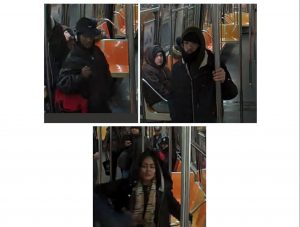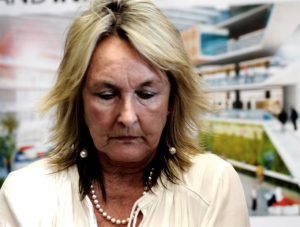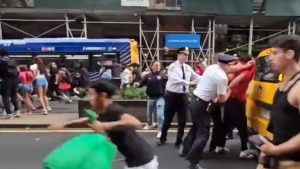Stores and warehouses in South Africa were hit by looters on Tuesday for a fifth day running despite a move by President Cyril Ramaphosa to deploy troops in a bid to quell unrest that has claimed 72 lives.
As pillaging erupted in the economic capital of Johannesburg and the southeastern province of KwaZulu-Natal, South Africa’s main opposition accused radicals of stoking the unrest.
The armed forces were sending 2,500 soldiers to help the overwhelmed police.
But these numbers are dwarfed by the more than 70,000 troops deployed to enforce last year’s coronavirus lockdown, and only a handful of soldiers were seen at some shopping centres.
The raging unrest first erupted last Friday after former president Jacob Zuma started serving a 15-month term for contempt, having snubbed a probe into the corruption that stained his nine years in power.
By the weekend, it started spreading to Gauteng province.
“The total number of people who have lost their lives since the beginning of these protests … has risen to 72,” the police said in a statement late Tuesday.
Most of the deaths “relate to stampedes that occurred during incidents of looting of shops”, it said.
Others were linked to shootings and explosions of bank ATMs.
The number of arrests has risen to 1,234, although many thousands have been involved in the ransacking sprees.
Earlier TV footage showed dozens of women, some wearing their dressing gowns, men and even children strolling into a butcher in Soweto, coming out balancing heavy boxes of frozen meat on their heads or shoulders.
Police showed up three hours later and fired rubber bullets. Soldiers eventually followed.
In Alexandra township north of Johannesburg, hundreds of people streamed in and out of a shopping mall, freely grabbing groceries.
Looters who spoke to AFP said they had got caught up in the rush, or saw the chance to ease a life blighted by poverty.
“I’m really not concerned about Zuma. He is a corrupt old man that deserves to be in jail,” said a 30-year-old man who works at a car wash.
He admitted to “taking things from the shop for my mum” — stainless-steel pots, meat and groceries.
In Pietermaritzburg, KwaZulu-Natal’s capital, people hauled boxed refrigerators through bushes to a long line of cars that were parked along a highway.
In Durban, aerial footage showed hundreds of people looting a large shopping centre and carting off huge boxes of goods.
A woman was seen throwing her baby from the first floor of a building to save her from fire after shops below her apartment were set on fire. The child safely landed with a group of people on the street.
In his nationwide address Monday night, Ramaphosa lashed “opportunistic acts of criminality, with groups of people instigating chaos merely as a cover for looting and theft”.
“The path of violence, of looting and anarchy, leads only to more violence and devastation,” Ramaphosa said.
The chair of the African Union Commission condemned “the surge of violence that has resulted in the deaths of civilians and appalling scenes of the looting”, calling “for an urgent restoration of order”.
The largest opposition party, the Democratic Alliance, announced Tuesday it would file criminal charges against Zuma’s children and the leader of the leftist Economic Freedom Fighters (EFF), Julius Malema.
In a statement, the party accused them of using “social media to express comments which appear to encourage and incite the violence and looting.”
Once dubbed the “Teflon president”, Zuma was handed the jail term on June 29 by the Constitutional Court for bucking an order to appear before a commission probing the graft that proliferated under his administration.
He started serving the term on Thursday after handing himself in to authorities.
He is seeking to have the ruling set aside.
Zuma, 79, is a former anti-apartheid fighter who spent 10 years in jail in the notorious Robben Island jail off Cape Town.
He rose in democratic South Africa to vice president and then president, before being ousted by the ruling African National Congress (ANC) in 2018 as scandals proliferated.
But he remains popular among many poor South Africans, especially grassroots members of the ANC, who portray him as a defender of the disadvantaged.
South Africa is deep in an economic malaise, with cripplingly high levels of unemployment. Economic activity had already been badly affected by restrictions to stop the spread of coronavirus.






